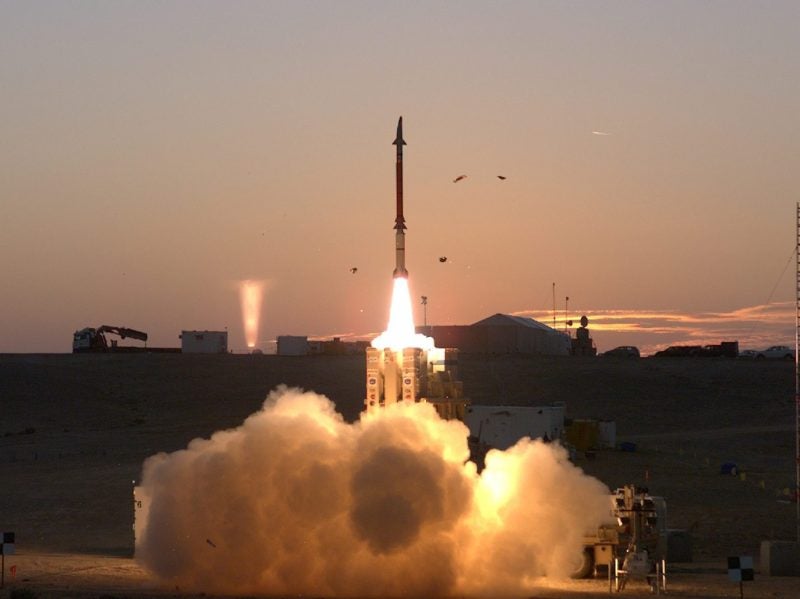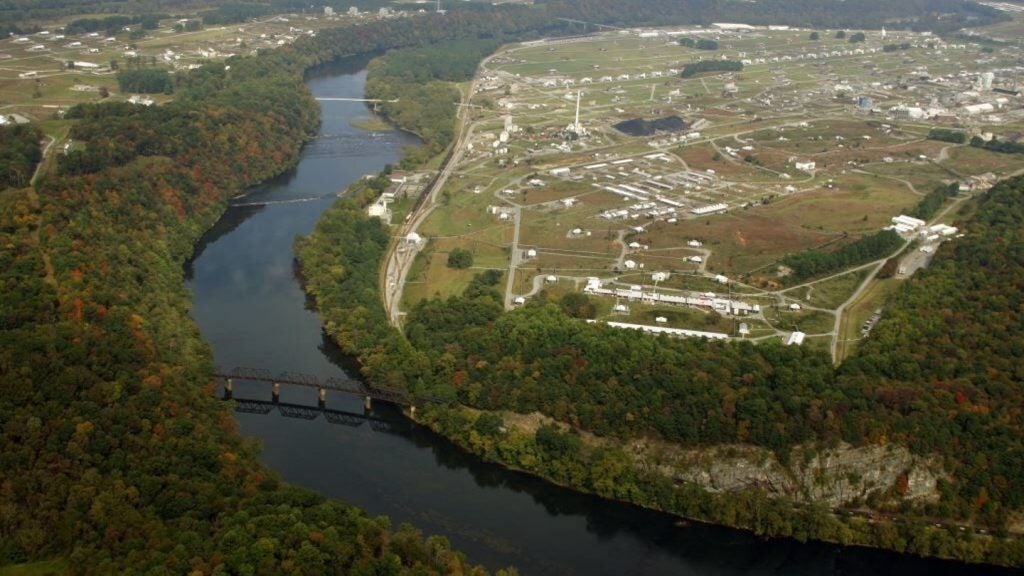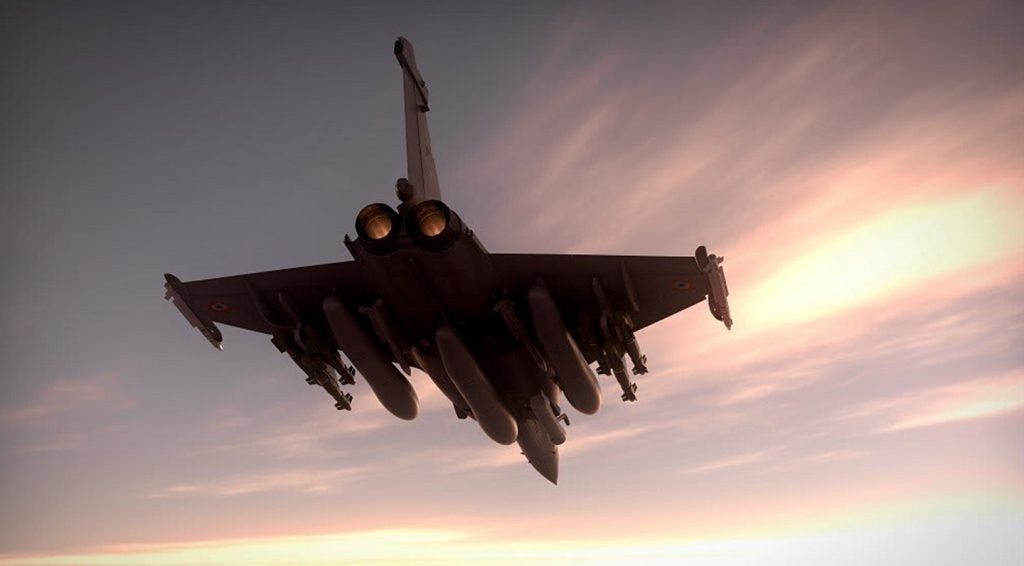
Iron Dome
Iron Dome, Israel’s advanced short-range air defence system, has been acquired by the US marking a new step in two countries’ partnership on the system. Iron Dome has seen $1.4bn of US funding from the beginning of its development until now. The Israel Defense Forces (IDF) say that the system has a near 90% success rate in neutralising enemy rockets, missiles and mortar fires.
One of the things that sets Iron Dome apart is how it assesses where projectiles fired into Israel will land. Anything that is predicted to land in an uninhabited area is not shot down, cutting costs and increasing efficiencies.
In 2014 US defence contractor Raytheon became an active partner in the programme, alongside Rafael Advanced Defense Systems and Israel Aerospace Industries. This deal moved some production to the US and has led to Raytheon developing a US version of Iron Dome called SkyHunter.
A source at Rafael Advanced Systems told Army Technology: “Rafael has been active in the US for over 25 years, in which it has made a significant operational and technological contribution to the US Military and specifically to the Army’s operational capabilities, survival, manoeuvrability and lethality.”
David’s Sling
Named after the story of David and Goliath, David’s Sling is another missile system developed under the cooperation between the US and Israel, with the US footing $1.8bn of the development costs.
Rafael said: “Rafael and Raytheon have jointly developed the already operational David’s Sling Air Defense System, which has just completed another series of interception tests in Israel. 50% of David’s Sling production takes place in 20 states in the US.”
How well do you really know your competitors?
Access the most comprehensive Company Profiles on the market, powered by GlobalData. Save hours of research. Gain competitive edge.

Thank you!
Your download email will arrive shortly
Not ready to buy yet? Download a free sample
We are confident about the unique quality of our Company Profiles. However, we want you to make the most beneficial decision for your business, so we offer a free sample that you can download by submitting the below form
By GlobalDataThis system is a part of Israel’s layered approach to air defence, covering medium ranges and neutralising threats through kinetic force rather than a conventional warhead. Like Iron Dome, the system is another partnership between Rafael and Raytheon, with work split between the US and Israel.
The system has an operational range of 25-185 miles (40-300km) and entered service in 2017 as a replacement for Israel’s earlier Hawk and Patriot missile systems produced in the US. The US Missile Defense Agency is said to be interested in David’s Sling as part of future air defences.
F-35I Adir
Israel was the first country to fly combat operations using Lockheed Martin’s F-35 advanced fighter platform, buying 50. The country is the only one to receive its own tailor-made variant, the F-35I Adir, making Israel’s F-35 is unlike any other.
Israel secured the purchase with an agreement for the US to make reciprocal purchases from Israeli defence contractors for each F-35 bought, which could total $4bn. Israel also secured deals for its defence sector with Israeli Aeronautics Industries, rather than Lockheed Martin, carrying out depot-level maintenance.
The country also secured an agreement with Lockheed Martin to run its own software alongside Lockheed Martin’s flight operating system. For the US, Israel having a more advanced F-35 in the Middle East allows it to exert power through its strategic ally.
Rafael said: “Throughout the years, Rafael has signed numerous joint ventures with American companies for joint development, production and marketing of air, land and marine systems. American companies involved in such partnerships include Boeing, GD, Lockheed Martin, Raytheon, DRS and many more.
United States-Israel Anti-Tunnel Defense Cooperation Act
This joint US and Israel endeavour is designed to enhance technology from the mining and energy sectors to ‘listen’ to the digging of tunnels through vibrations. The system will serve a dual purpose in the national security of both nations as they seek to stop tunnels traversing their borders.
For the US the goal of the system is to help detect cartels building tunnels to transport drugs before they can be completed, and for Israel to prevent Hamas tunnels emerging from the Gaza Strip. Since 2016 the programme has seen $177m of US investment according to a report from the Congressional Research Service.
This month Israel reportedly tested the tunnel detection technology, however, it has yet to publish details. The US is also interested in the anti-tunnel technology after extensive use of tunnelling by the Islamic State in Syria and Iraq.
Elbit’s unmanned aerial systems
Elbit Systems is an Israeli company specialising in unmanned aerial systems (UAS) now with a US-based division. A focus of this collaboration is the Elbit Hermes 450 medium-sized unmanned aerial vehicle. Used by the Israel Air Force as an assault UAS, it has been frequently used in air-raids on the Gaza Strip. In the US, the US Customs and Border Protection agency used them for surveillance on the US-Mexico border. The Elbit Hermes 450 also forms the backbone of the UK’s Watchkeeper programme which brings together Elbit and Thales.
Elbit) has seen its technology employed in different ways by the US and Israel. The Israel Air Force has modified the company’s Hermes 450 to be an assault vehicle, equipping it with hellfire missiles. The US, on the other hand, has employed unarmed drones on the US-Mexico border for surveillance and policing purposes.
Elbit Systems came into existence in 1966, opening a US arm of the company Elbit Systems of America in 1993. The US wing of Elbit started life as a key contractor in the F-16 programme. Since then the company has expanded its US operation to cover eight states.






